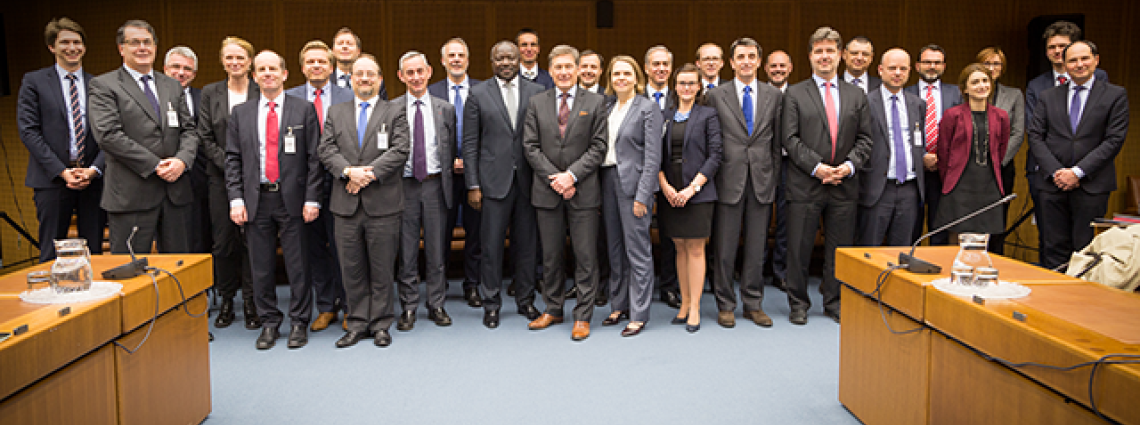European Union Council's Political and Security Committee visits the CTBTO
Vienna, 25 April 2016
The CTBT is a Treaty that is ready but not yet in force.
Members of the EU Political and Security Committee receive a tour of the IMS radionuclide station on the roof of the Vienna International Centre.
Randy Bell, Director of the International Data Centre (IDC), briefs the Members of the EU Political and Security Committee
The CTBTO stands ready to fulfil the terms and verification of the Treaty, as soon as the remaining 8 Annex 2 countries ratify to bring the CTBT into force. A CTBTO High-Level Ministerial meeting on 13th June 2016 seeks to bring policymakers to Vienna to discuss how to move forward on the Treaty. Federica Mogherini, High Representative of the European Union for Foreign Affairs and Security Policy and member of the CTBTO Group of Eminent Persons, has made bringing the CTBT into force as one of the main objectives of the EU.
Background
28 Apr 2016
